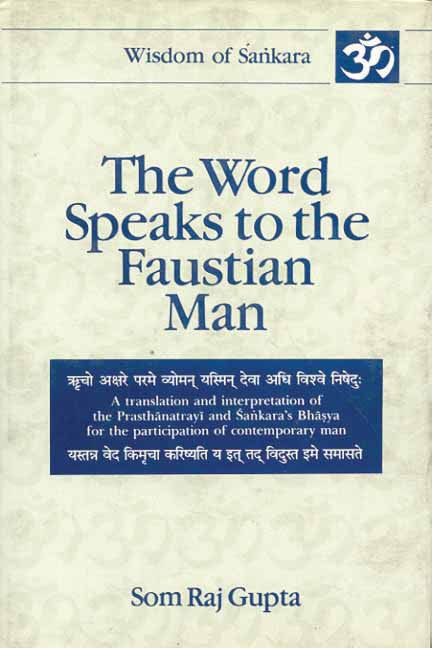Word Speaks to the Faustian Man (Vol. 4): (Chandogyo Upanisad)
![]() 100% Genuine New Books
100% Genuine New Books
![]() Fast Shipping with Tracking Number
Fast Shipping with Tracking Number
Secure Payments via UPI, Cards & Wallets
![]() Trusted Support & Easy Returns
Trusted Support & Easy Returns
Word Speaks to the Faustian Man (Vol. 4): (Chandogyo Upanisad) - Hardcover is backordered and will ship as soon as it is back in stock.
ISBN : 9788120817975, 8120817974
Year of Publication : 2001
Edition : 1st
No. of Pages : 797
Language : English
Condition : New
Publisher: Motilal Banarsidass Publishing House
Free shipping on orders over Rs. 249
Free shipping on orders over Rs. 249
We offer free shipping on orders above Rs. 249 in India. For orders below this threshold, a nominal shipping fee may apply, which will be clearly indicated during the checkout process.
How long will it take to receive my order?
How long will it take to receive my order?
The delivery time varies depending on your location. Generally, orders are processed and shipped within 1-3 business days. Once shipped, you can track and expect your order to arrive within 3-7 business days (the duration may vary depending on your location). For more information, please refer to our shipping policy.
Chat with a Real Person
Chat with a Real Person
WhatsApp chat is dedicated to assisting with after-sales queries regarding delivery, returns, and payments. Click below to initiate chat with us on WhatsApp:
[Bookstaa WhatsApp Chat].
For all other inquiries, please visit our customer support page or email us at support@bookstaa.com.
Couldn't load pickup availability
Description
Description
The Chandogya Upanisad: The culture it reflects is remote and archaic, the
texture of its ritualistic and contemplative symbolism thick and
dense-virtually a closed book for us moderns. A sustained self-submitting
attentiveness, however, discloses its language as resonating disturbingly
modern notes, focusing our attention on many of our pathologies as well as
our possibilities, pathologies and possibilities that have escaped the
notice of us moderns. The spirit of quiet hermeneutics that characterizes
this study illumines many an opaque spot in this text, solves many an
interpretive puzzle, turns many of its 'archaic naivetes' into living and
compelling profundities. We are made to realize that what some moderns call
Gestell is far more primordial than they would envisage it to be, far more
ominous and primitive, tragic and persistent. A radical transformation is
required, an ontological transformation.
Not mere 'a masterly exposition' of an ancient text is, therefore, this
study, but 'an authentic springboard for fresh philosophical thinking
fecundating (the) two shores of the human experience: East and West'. The
first three (published) Vols. are on (i) Isa, Kena, Katha and Prasna
Upanisads; (ii) Mundaka and Mandukya Upanisad with Gaudapada Karika; (iii)
Taittiriya and Aitareya Upanisads.
About the Publisher

Motilal Banarsidass Publishing House (MLBD)
Motilal Banarsidass Publishing House, popularly known as MLBD, is one of the oldest and most prestigious publishing houses in India, established in 1903.
With over a century of legacy, MLBD has been at the forefront of publishing scholarly works in the fields of Indology, Sanskrit, philosophy, religion, spirituality, yoga, Buddhism, and Jainism.
Renowned for its authenticity and academic rigour, MLBD's books are trusted by researchers, scholars, and readers across the globe.
With more than 5,000 titles in circulation, MLBD continues to uphold its commitment to preserving and promoting India’s rich cultural and philosophical heritage.
Bookstaa is an authorized distributor of MLBD books, ensuring 100% genuine and original publications for our readers.

